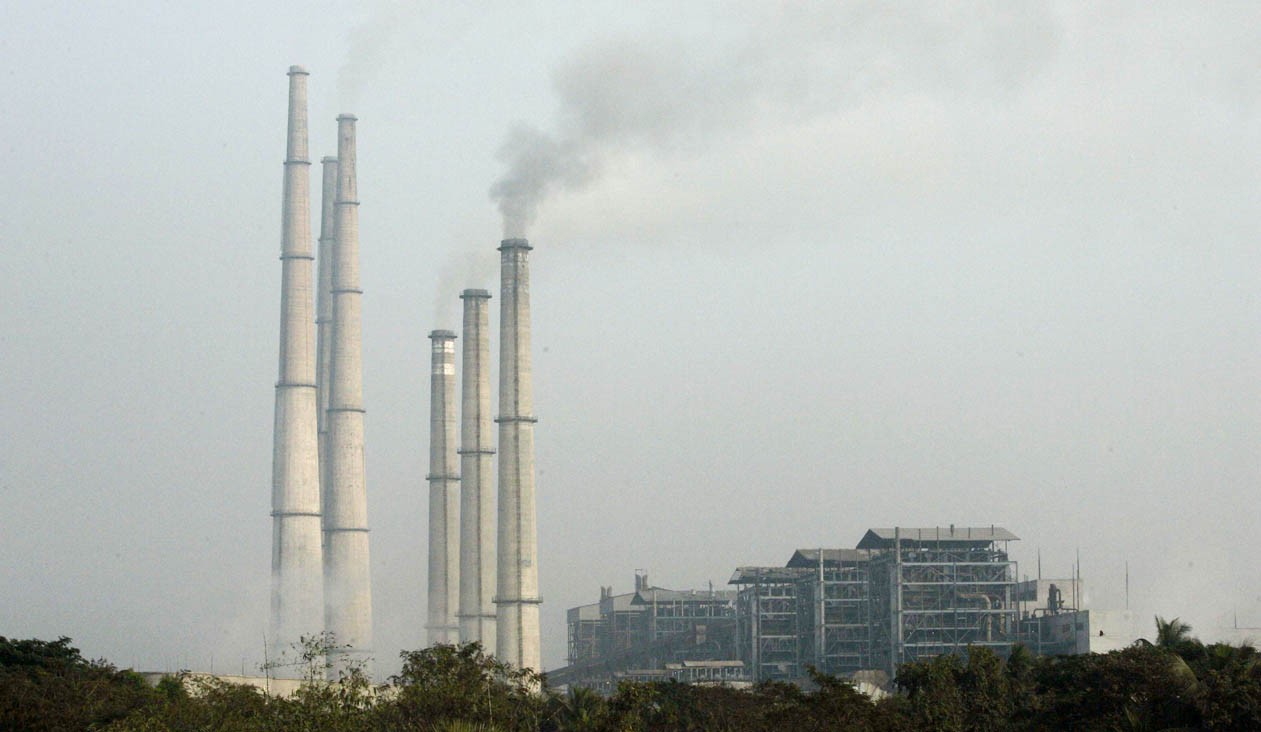
A calamity may not necessarily kill anyone, what kills people is an inadequate response to the calamity

In 1992 at the Earth Summit Nawaz Sharif represented Pakistan in Rio de Janeiro. In 2015 at the Paris Climate Conference, Nawaz Sharif represented Pakistan once again and took pride in being the only prime minister to attend two major climate conferences.
This was stated by climate experts at a workshop organized by Heinrich Boll Stiftung (HBS), a German non-political organization aiming to raise climate awareness through their initiative ‘There is no Planet B’.
Experts talked about how Pakistan is becoming increasingly vulnerable to climate change and being ranked in Germanwatch’s annual Global Climate Risk Index both in the short and long-run. According to the index, Pakistan is listed as the 11th most affected country to climate change in 2015, losing USD 907.122 million and 0.0974 per cent to the GDP. Whereas in the 20-year average (1996-2015), Pakistan is ranked 7th, losing USD 3.823 billion and 0.647 per cent to the GDP, thus revealing that Pakistan’s vulnerability is increasing in the long-run.
For Mome Saleem, the Programme Coordinator at HBS, climate negotiations are measures to save the planet from climate-induced disasters. Therefore, in order to address the impacts of climate change, developing nations rigorously follow climate conferences and come better prepared to access climate finance, especially the USD 100 billion Green Climate Fund (GCF).
According to Kashmala Kakakhel, a climate finance expert, the Paris conference was one of the most defining moments of climate change -- when 194 states after 22 years of endless negotiations decided what they will do to limit temperature rise below 2 degrees, to avoid the catastrophic impacts of climate change.
Shedding light on climate finance in the light of major carbon polluters, Kakakhel says: "We as developing states talk about getting climate finance from the West. It is about historical responsibilities in terms of emissions, as they have a responsibility towards us. Climate science is clear that the industrialisation of the western world is most responsible for exacerbating climate change and global warming. We need to be very clear on this."
The planet is in danger as the World Meteorological Organization’s annual greenhouse gas bulletin has revealed that 2016 was the first year, in which the concentrations of carbon dioxide remained above 400 parts per million threshold, throughout the year, and will continue to do so for generations to come
At the conference, experts also talked about Pakistan’s Nationally Determined Contributions (NDC), which was recently submitted to the United Nations Framework Convention on Climate Change (UNFCCC), according to which, the country needs USD 40 billion for mitigation and USD 7-14 billion for adaptation. Experts argued that in order for Pakistan to demand this much climate finance for adaptation and mitigation, it should also elaborate its plans on how it will utilise the requested finance, by doing its breakdown into projects. Most importantly, the NDC does not mention how it plans to address climate change through internal resources and how much it can upscale climate adaptation and mitigation through foreign funding.
Aisha Khan, the executive director of Mountain and Glaciers Protection Organization (MGPO), who also leads a civil society coalition in Pakistan, and was a part of the official delegation at COP22, urged to put the house in order first, before applying for foreign funding.
"Just having knowledge doesn’t mean we’ll be a good negotiator. People in the Ministry of Climate Change need to be trained first, so that Pakistan’s position can be effectively showcased. Because whatever decisions are taken at climate negotiations i.e. COPs has legal implications," says Khan.
While commenting on Pakistan’s NDC, Khan said, "Our emissions in the carbon trajectory are less than one per cent, almost 0.8 per cent, and we demand USD 40 billion to mitigate them. We do not mention why? This further weakens our position in global climate negotiations."
She further says that, "It is unfortunate that Pakistan does not have the technical and resource capacity to deal with climate change. With various windows for climate funding about to get open, it is high time to develop specific projects, and build local capacity to address climate change. However, our first priority should be to raise climate finance internally, because if do not receive foreign funding for climate adaptation and mitigation, then what will be the plan B?" queried Aisha.
Questions are being raised about what Pakistan was doing from the past 70 years? Pakistan’s projects can become worthless, if the house is not put to order. The country needs to discuss how to curtail its population, carry out a much needed population census, finalising water policy and land zoning laws and exploring loss and damage scenarios. By asking itself these questions, Pakistan can become a responsible state, not a headless monster.
The country needs to nurture a better world for generations to come, as they will be able to save it, only when there’s something reparable behind. With the world’s biggest carbon polluters switching away from coal and investing in renewables, Pakistan should follow the bandwagon. If by any means, Pakistan plans to increase its emissions, by installing coal-fired power plants and promoting unsustainable development at large, it will further increase its climate vulnerability, and along with it lose its credentials in the global market, thus affecting its exports.
Last but not the least, Pakistan needs to protect its people from the catastrophic impacts of climate change by having a national risk-mapping index to identify the vulnerable areas and establishing state-of-the-art warning systems for adaptation.
A calamity might not kill anyone, what kills people is an inadequate response to the calamity. In the name of climate change, Pakistan has to act, both nationally and internationally, before the situation gets out of hand.